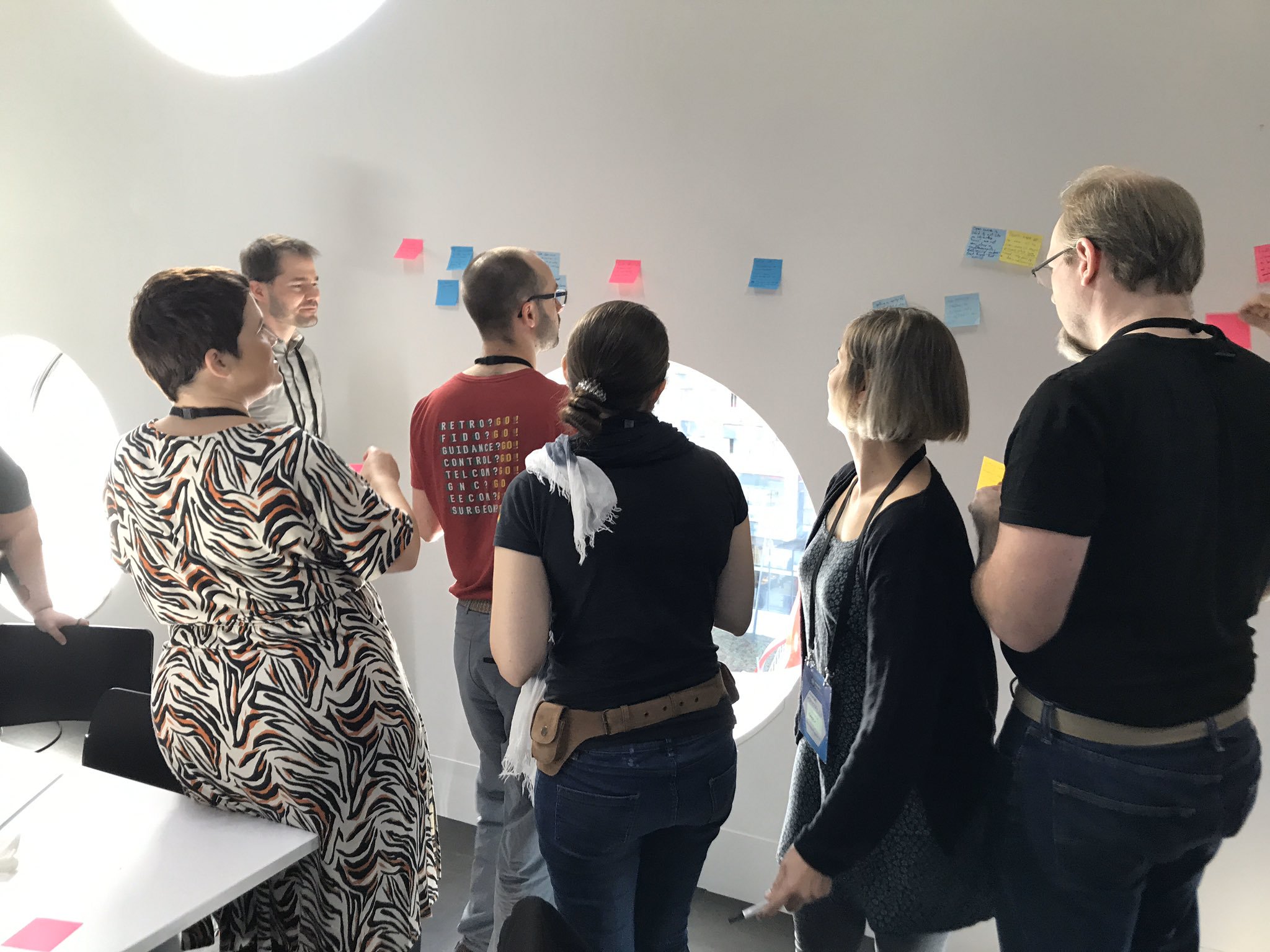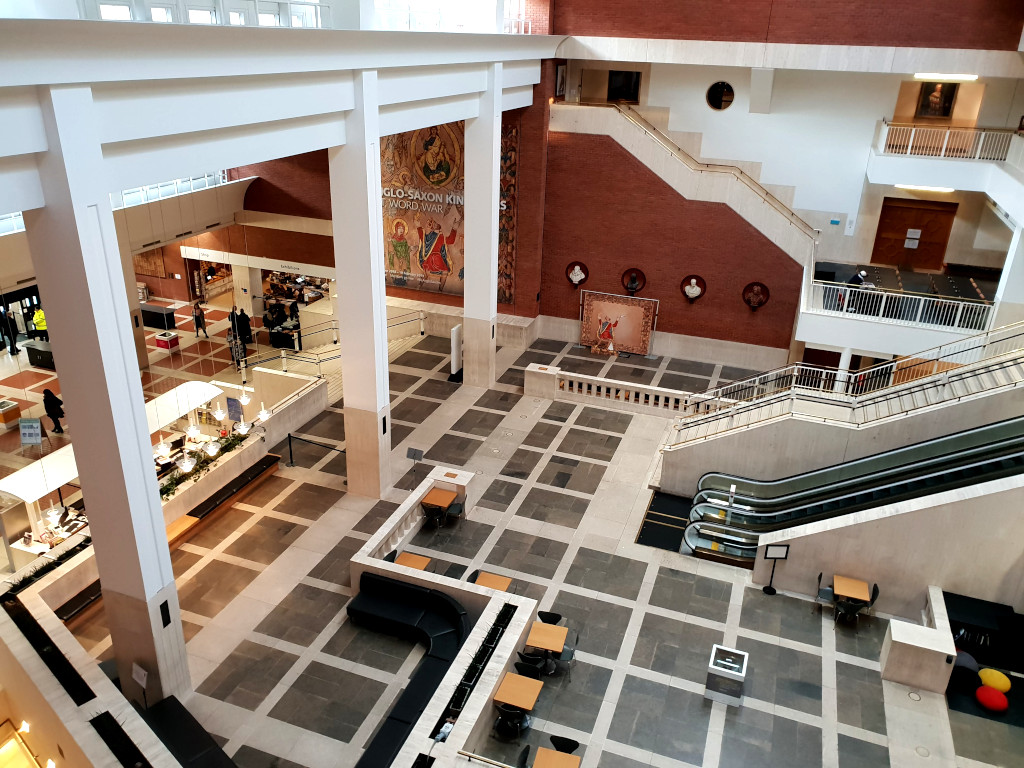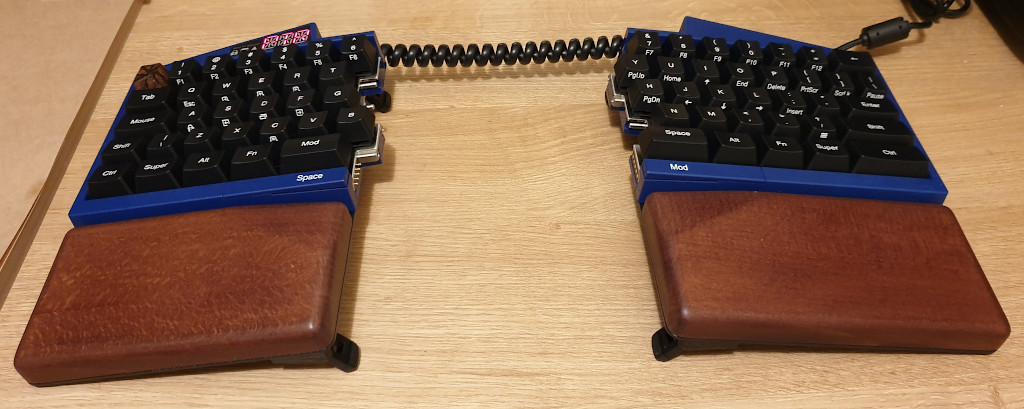I’m honoured and excited to be named one of this year’s Software Sustainability Institute Fellows. There’s not much to write about yet because it’s only just started, but I’m looking forward to sharing more with you. In the meantime, you can take a look at the 2020 fellowship announcement and get an idea of my plans from my application video:
Replacing comments with webmentions
Just a quickie to say that I’ve replaced the comment section at the bottom of each post with webmentions, which allows you to comment by posting on your own site and linking here. It’s a fundamental part of the IndieWeb, which I’m slowly getting to grips with having been a halfway member of it for years by virtue of having my own site on my own domain.
I’d already got rid of Google Analytics to stop forcing that tracking on my visitors, I wanted to get rid of Disqus too because I’m pretty sure the only way that is free for me is if they’re selling my data and yours to third parties. Webmention is a nice alternative because it relies only on open standards, has no tracking and allows people to control their own comments. While I’m currently using a third-party service to help, I can switch to self-hosted at any point in the future, completely transparently.
Bridging Carpentries Slack channels to Matrix
It looks like I’ve accidentally taken charge of bridging a bunch of The Carpentries Slack channels over to Matrix. Given this, it seems like a good idea to explain what that sentence means and reflect a little on my reasoning. I’m more than happy to discuss the pros and cons of this approach
If you just want to try chatting in Matrix, jump to the getting started section
What are Slack and Matrix?
Slack (see also on Wikipedia), for those not familiar with it, is an online text chat platform with the feel of IRC (Internet Relay Chat), a modern look and feel and both web and smartphone interfaces. By providing a free tier that meets many peoples’ needs on its own Slack has become the communication platform of choice for thousands of online communities, private projects and more.
MozFest19 first reflections
Discussions of neurodiversity at #mozfest
Photo by Jennifer Riggins
The other weekend I had my first experience of Mozilla Festival, aka #mozfest.
It was pretty awesome.
I met quite a few people in real life that I’ve previously only known (/stalked) on Twitter, and caught up with others that I haven’t seen for a while.
I had the honour of co-facilitating a workshop session on imposter syndrome and how to deal with it with the wonderful Yo Yehudi and Emmy Tsang. We all learned a lot and hope our participants did too; we’ll be putting together a summary blog post as soon as we can get our act together!
Music for working
Today1 the office conversation turned to blocking out background noise. (No, the irony is not lost on me.) Like many people I work in a large, open-plan office, and I’m not alone amongst my colleagues in sometimes needing to find a way to boost concentration by blocking out distractions. Not everyone is like this, but I find music does the trick for me. I also find that different types of music are better for different types of work, and I use this to try and manage my energy better.
Working at the British Library: 6 months in

It barely seems like it, but I’ve been at the British Library now for nearly 6 months. It always takes a long time to adjust and from experience I know it’ll be another year before I feel fully settled, but my team, department and other colleagues have really made me feel welcome and like I belong.
One thing that hasn’t got old yet is the occasional thrill of remembering that I work at my national library now. Every now and then I’ll catch a glimpse of the collections at Boston Spa or step into one of the reading rooms and think “wow, I actually work here!”
RDA Plenary 13 reflection
Photo by me
I sit here writing this in the departure lounge at Philadelphia International Airport, waiting for my Aer Lingus flight back after a week at the 13th Research Data Alliance (RDA) Plenary (although I’m actually publishing this a week or so later at home). I’m pretty exhausted, partly because of the jet lag, and partly because it’s been a very full week with so much to take in.
Using Pipfile in Binder

I recently attended a workshop, organised by the excellent team of the Turing Way project, on a tool called BinderHub. BinderHub, along with public hosting platform MyBinder, allows you to publish computational notebooks online as “binders” such that they’re not static but fully interactive. It’s able to do this by using a tool called repo2docker to capture the full computational environment and dependencies required to run the notebook.
What do you think I should write about?
I’ve found it increasingly difficult to make time to blog, and it’s not so much not having the time — I’m pretty privileged in that regard — but finding the motivation. Thinking about what used to motivate me, one of the big things was writing things that other people wanted to read.
Rather than try to guess, I thought I’d ask!
Those who know what I'm about, what would you read about, if it was written by me?
I'm trying to break through the blog-writers block and would love to know what other people would like to see my ill-considered opinions on.
Ultimate Hacking Keyboard: first thoughts

Following on from the excitement of having built a functioning keyboard myself, I got a parcel on Monday. Inside was something that I’ve been waiting for since September: an Ultimate Hacking Keyboard! Where the custom-built Laplace is small and quiet for travelling, the UHK is to be my main workhorse in the study at home.
Here are my first impressions:
- Key switches
- I went with Kailh blue switches from the available options. In stark contrast to the quiet blacks on the Laplace, blues are NOISY! They have an extra piece of plastic inside the switch that causes an audible and tactile click when the switch activates. This makes them very satisfying to type on and should help as I train my fingers not to bottom out while typing, but does make them unsuitable for use in a shared office! Here are some animations showing how the main types of key switch vary.
- Layout
- This keyboard has what’s known as a 60% layout: no number pad, arrows or function keys. As with the more spartan Laplace, these “missing” keys are made up for with programmable layers. For example, the arrow keys are on the Mod layer on the I/J/K/L keys, so I can access them without moving from the home row. I actually find this preferable to having to move my hand to the right to reach them, and I really never used the number pad in any case.
- Split
- This is a split keyboard, which means that the left and right halves can be separated to place the hands further apart which eases strain across the shoulders. The UHK has a neat coiled cable joining the two which doesn’t get in the way. A cool design feature is that the two halves can be slotted back together and function perfectly well as a non-split keyboard too, held together by magnets. There are even electrical contacts so that when the two are joined you don’t need the linking cable.
- Programming
- The board is fully programmable, and this is achieved via a custom (open source) GUI tool which talks to the (open source) firmware on the board. You can have multiple keymaps, each of which has a separate Base, Mod, Fn and Mouse layer, and there’s an LED display that shows a short mnemonic for the currently active map. I already have a customised Dvorak layout for day-to-day use, plus a standard QWERTY for not-me to use and an alternative QWERTY which will be slowly tweaked for games that don’t work well with Dvorak.
- Mouse keys
- One cool feature that the designers have included in the firmware is the ability to emulate a mouse. There’s a separate layer that allows me to move the cursor, scroll and click without moving my hands from the keyboard.
- Palm rests
- Not much to say about the palm rests, other than they are solid wood, and chunky, and really add a little something.
I have to say, I really like it so far! Overall it feels really well designed, with every little detail carefully thought out and excellent build quality and a really solid feeling.